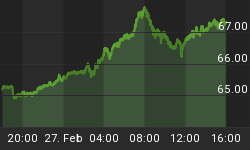Money has always been the most powerful advantage of the Saudis, and the disappearance of prominent, self-exiled Saudi journalist Jamal Khashoggi following a visit to the Saudi Consulate in Turkey has brought this into clearer focus--even prompting the question as to whether Saudi money can buy just about anything, including American policy.
It hasn’t helped that on the same day that U.S. Secretary of State Mike Pompeo landed in Riyadh to get information about Khashoggi's disappearance, the Saudis wired $100 million to the U.S. government to support American efforts to stabilize certain areas of Syria.
That support money had been agreed upon earlier, but the timing wasn’t ideal, coming as it did amid strong pressure internationally and within the U.S. to respond appropriately to the Saudi royal family’s alleged role in the presumed murder of Khashoggi.
Middle East experts said the timing of the $100-million wire was likely meant to be a clear message to the Trump administration.
“In all probability, the Saudis want Trump to know that his cooperation in covering for the Khashoggi affair is important to the Saudi monarch,” University of Oklahoma professor Joshua Landis told the Washington Post. “Much of its [Saudi] financial promises to the U.S. will be contingent on this cooperation.”
Like the majority of high-level issues in the U.S. today, this one, too, is heavily polarized.
Some representatives of the U.S. government insist there is no connection between the Saudi wire and the Khashoggi controversy or Pompeo’s trip to Riyadh.
Brett McGurk, U.S. envoy to the coalition fighting the Islamic State in Syria, dismissed the notion entirely, saying: “The specific transfer of funds has been long in process and has nothing to do with other events or the secretary’s visit,” as reported by the New York Times. Related: Amazon Favored To Win $10 Billion Pentagon Contract
Up until two weeks ago, Saudi Arabia was supposed to be the host of one of the most important investment conferences in the world, “Davos in the Desert”, as part of Crown Prince Mohammed bin Salman's (MbS) plan to transform the oil-dependent economy.
This promising venue for MbS to present his high-flying reform efforts in Saudi Arabia is not without significance. Nor is it without significance that Khashoggi was one of the regime’s biggest critics from a human rights and democracy perspective.
Now “Davos in the Desert” is dulling—fast. The list of invitees is changing as big names drop out over the journalists’ disappearance.
JP Morgan CEO Jamie Dimon has dropped out; as have Blackrock and Blackstone heads.
Ford and MasterCard top execs are also snubbing the conference, and Google’s cloud computing business chief won’t be showing up, either.
The investment community has spoken, rather loudly, with Richard Branson, founder and chairman of the Virgin Galactic space tourism venture, announcing earlier this week that his company is temporarily suspending its partnership with the Saudis, putting a risk a promised $1-billion investment. Indeed, reports emerged immediately afterward that the Saudis had allegedly responded as expected by suspending a $1-billion investment in Virgin’s hyperloop.
Related: American Steel Downgraded As Trade War Escalates
Following suit on Tuesday were three of Europe’s top bankers, including the CEOs of HSBC, Credit Suisse and Standard Chartered, followed on Wednesday by BNP Paribas of France. Likewise, the list of attendees will no longer include the heads of the IMF or the London Stock Exchange.
Nor is it only the investment community: Government officials are also withdrawing from “Davos in the Desert”, with both French and Dutch ministers confirming the move, according to the Associated Press.
The pressure is on, and even U.S. Treasury Secretary Steven Mnuchin is pulling out of the conference, after consulting with Trump on the issue.
Meanwhile, in a "60 Minutes" interview on Sunday, Trump reiterated that he wants to get to the bottom of the Khashoggi case but doesn't want to endanger the $110-billion arms deal with the Saudis, though Mnuchin’s withdrawal may have already done so.
By Charles Benavidez for Safehaven.com
More Top Reads From Safehaven.com:
















